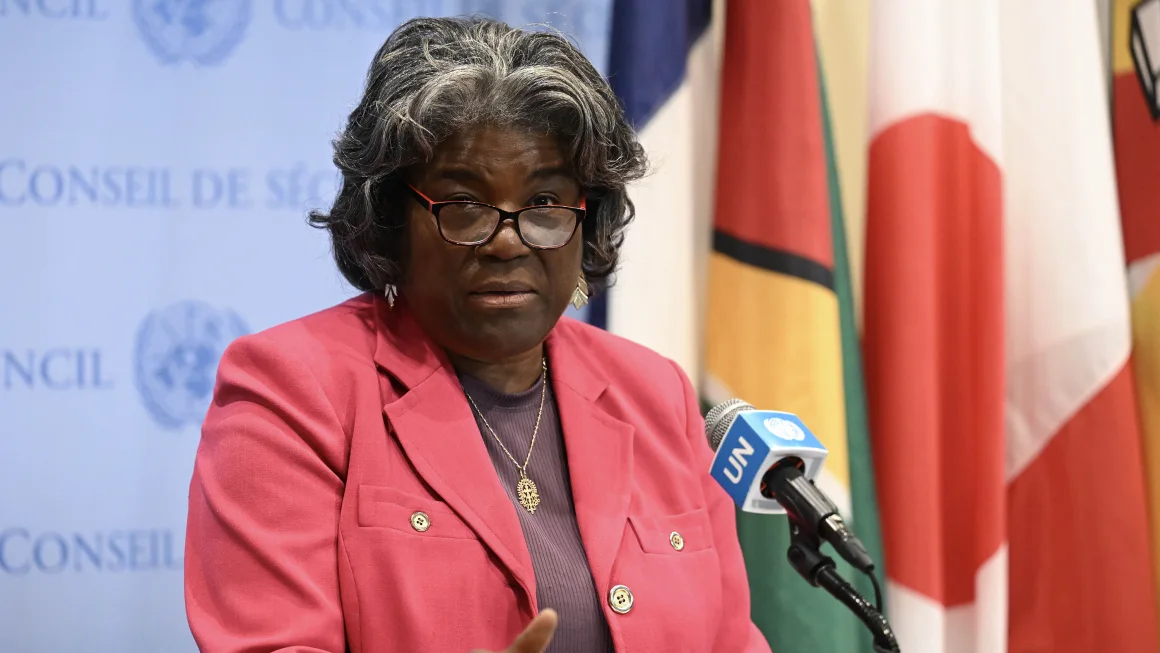In a decisive move that underscores the complexities of international diplomacy, the United States has signaled its intention to veto a new resolution proposed by Algeria calling for a humanitarian ceasefire in Gaza. This resolution, aimed at halting the ongoing conflict and facilitating the delivery of essential humanitarian aid, has encountered resistance from Washington at the United Nations Security Council.
The United States Ambassador to the United Nations, Linda Thomas-Greenfield, emphasized the efforts of the US in brokering an alternative deal between Israel and Hamas. This proposed agreement, highlighted by Thomas-Greenfield, involves the release of hostages and a ceasefire that would extend for at least six weeks. The ambassador’s statement sheds light on the intense diplomatic engagements undertaken by President Joe Biden with key regional leaders, including Israeli Prime Minister Netanyahu and the leaders of Egypt and Qatar, in pursuit of a viable peace deal.
Despite these efforts, the resolution drafted by Algeria has garnered support from various Arab nations within the UN, signaling a strong collective desire for an immediate cessation of hostilities and the provision of unhindered humanitarian aid, especially in light of Israel’s anticipated ground invasion of Rafah. Palestinian Ambassador Riyad Mansour, voicing the urgency of the situation, called for the UN’s decisive action in support of the resolution.
However, Thomas-Greenfield argues that the Algerian draft resolution may inadvertently undermine the prospects of the more comprehensive peace deal being pursued by the US. She advocates for a strategic approach that increases pressure on Hamas to accept the ongoing negotiation terms, highlighting the importance of protecting over a million civilians in Rafah and ensuring the delivery of critical aid to Palestinian civilians.
As the international community stands at a crossroads, the US’s stance at the UN Security Council highlights the delicate balance between immediate humanitarian concerns and the pursuit of a longer-term peace agreement. The unfolding events underscore the critical role of diplomacy in navigating the intricate web of interests and expectations that define the Israeli-Palestinian conflict.
The situation at the UN Security Council serves as a poignant reminder of the challenges that lie in the path of peace and the enduring need for patience, persistence, and principled diplomacy in the quest for a lasting resolution to one of the world’s most protracted conflicts.





















